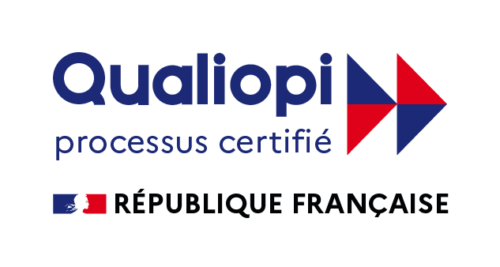Eric Mellet : Background and journey of a field consultant

In this first article, I kindly accepted to be interviewed by communication consultancy « Les Mots qui Manquent » to tell you about my personal background and professional career, which combines field experience and theoretical research.
As a consultant, a coach and a trainer, Eric Mellet combines an extensive experience in management with an academic background in Applied Positive Psychology and describes himself as the one “who open doors»
For Eric, “Opening doors” is much more than a tagline or buzzword devoid of meaning, but a way of being and behaving that entails taking a specific approach to life, which is doubtlessly related to his foremost strength of character: his inventiveness and creativity, which is informed by Positive Psychology.
Eric, could you tell us more about this one-liner «opening doors» ?
Whether you are helping someone individually or providing input on the policy of an organization to help it in its transformation process, carefully listening to what people tell you in their own words» and challenging what they have to say often results in getting them to realize that what they had so far considered insignificant may have value.
The exact moment that a person or group moves from the stance “ I do not know that I do not know » to ‘I know that I don’t know » opens the door onto a new vista of opportunity, self-evident truths and new resources to be harnessed… It all starts with the confidence you have in what is alive and sound in an organization, and with making a bet on its intelligence and ability to adapt to new circumstances and on its capacity to come up with a solution, on its own. This has informed my convictions all along, especially, about the « learning organization » and about the conditions conducive to this capacity to “learn together”, which is, according to Peter Senge, the wellspring of long-term competitiveness.
Therefore, opening one’s mind is not only an intellectual process, but also one that triggers emotions and generates renewed energy to imagine, explore and test « new ways of thinking and acting”, both individually and collectively. Besides, emotional intelligence is a major research topic in positive psychology and one of the methods used to harness Collective Intelligence, without which no organization would be capable of keeping pace with the unprecedented rapidity and volatility of the business, social and climatic environment.
And more precisely, how did you get into psychology?
Indirectly, I have always been attracted to psychology as a way of understanding what makes man tick and influences our beliefs and behavior patterns.
I started my professional career as a sales representative at L’Oréal and went on to spend most of my time as a sales manager supervising sales reps and devising training programs to develop their skills, in search of Excellence. All those experiences brought me into contact with people from all walks of life as my areas of responsibility widened. A career which began in the French South-West, continued in Europe and throughout the world; and gave me the privilege and opportunity to discover the inexhaustible riches that diversity has on offer.
Basically, the sales rep business is one that thrives on good relationships. I always thought that before attempting to sell anything, you must develop a rapport with clients.
How did your psychological approach become more professional?
I pursued my personal research in a variety of ways, be it through Neurolinguistic Programming, Kendo practiced with a Japanese master for 14 years, Carl Rogers’s Person-centered Approach (Humanist Psychology) or Appreciative Inquiry…all this informed my practice et my thoughts in my job as line manager for a multinational company and I am today sharing these insights with my clients as both a Coach and a Consultant.
What lessons did you learn from Carl Rogers’s psychological approach in your job?
Taking his cues from Maslow, Rogers, in the Seventies, took a positive view of man and described his natural tendency to individualization, a process which, while making him feel responsible for determining the course of his life, also gave him the ability to know what is good for him, and taught him how to «self-actualize», that is to say, achieve his full potential and thus become a fully functioning person. He is also one of the fathers of group-centered education, which later would fuel the development of participative management and coaching by making the “client” a key player in finding the right solution. According to Rogers, « knowledge » resides in the mind of a person or group: it is therefore a matter of acting as facilitator by helping people express their feelings, ideas and insights, « Here and Now».
In the era of “Customer Experience », such are the qualities that are expected of a sales rep who wishes to co-create with the customer a shopping experience. These are also the qualities that are today sought in a leader from whom one expects less technical sophistication but more ability to drive the organization forward and provide an environment conducive to fostering collective intelligence as the premier source of organizational agility and innovation capacity. It is that capacity to let go of the need to control everything in order to put one’s trust in the process which resonated with what I was experiencing at L’Oréal at the time; leading to the emergence of what would later become the first Brand University: the Matrix Sales University.
I had an intuition of this project, although I was not aware of the ins and outs or of the process needed to get it off the ground. Lacking the financial or human resources required to carry out such an ambitious project, I had to take one small step at a time while relying on the energies, the « goodwill » and the inventiveness of those (Country Managers) who realized that this would bring added value to the launch of a brand in their respective countries. It was a matter of « giving meaning» to the whole project as it began to take shape, just like a surfer must balance on his or her board while catching and riding a wave.
With the benefit of hindsight, I realized that the idea of creating a corporate university (L'Oréal Sales Academy) in 75 countries took hold and became naturally accepted as the combination of a vision and of my life journey, although I find it difficult to know which of the two was more instrumental.
Doors can be opened in many ways and they can be opened in many directions… This involves creating bonds, facilitating learning circles, propagating ideas… at a more practical level, I used the experience gained in the field after having been a sales rep and a manager, and did not only rely on abstract theories learnt from an Excel spreadsheet…. Last, it entails taking one step at a time while cultivating inner resources like empathy, optimism, resilience, confidence in yourself and confidence in others.
What can the field of Positive Psychology bring to organizations?
To explain this, let’s go back to the basic definition: Positive Psychology is the « scientific study of optimum human functioning. Its purpose is to discover and promote the factors that enable individuals, organizations and institutions to fully realize their development potential. » (Akumal Manifesto, 1999).
The models that have emerged in organizations and which have been disseminated by leading consulting firms have, so far, emphasized finding the root cause of the problem», and identifying and implementing solutions, and of course assessing their impact… We know that about 70% f attempts at change management* which are based on this approach fail, resulting in a new search for the cause of the problem…An inordinate amount of time is being spent tracking down the malfunction, focusing on the weaknesses, errors and shortcomings rather than identifying «what has worked », what is healthy and the inherent strengths of the person or individual on the basis of which a vision can be developed which creates collective enthusiasm and a commitment to “find solutions together»…This is not a question of denying the problems and difficulties, but of “choosing” to tackle them in a more appreciativemanner, that is to say, of identifying and recognizing what is already being done well and what can serve as a foundation to do it « better and more effectively » That is a quite revolutionary and highly demanding attitude because it does lead us to go against the natural trend of our brain to first assert the negative, a trend which being reinforced by our culture, our education system and later conventional managerial practices. It is no wonder that in those circumstances, individuals, at whatever level they may be in organizations, withdraw and protect themselves against being caught « doing the wrong thing » by pointing the finger at and blaming others. Such a workplace environment conduces to more unpleasant feelings and emotions such as fear, sadness, frustration and anger, and apart from what research has taught us, common sense should suffice for us to understand that this does not promote motivation, commitment, creativity or solidarity, which are indispensable to outstanding and lasting performance !
In this connection, my Master thesis aimed at combining the research and discoveries in Positive Psychology as applied to the work environment, from both an individual and collective standpoint, with my real-world experience of thirty years within a large organization or that which my clients are living day to day.
A new door is opening and the more I discover what lies beyond it, the more I feel joy and enthusiasm to share other ways to look at things and to do things together


